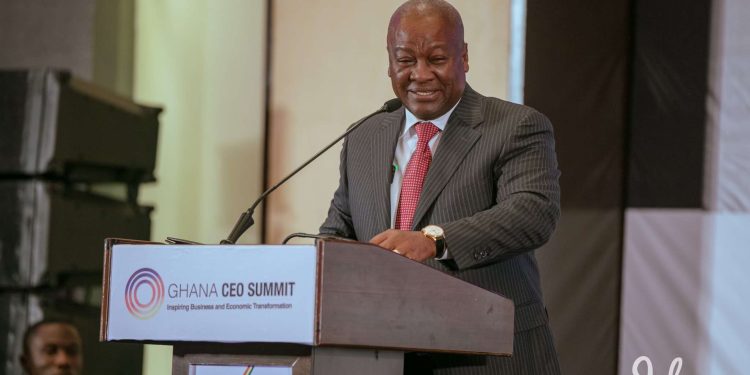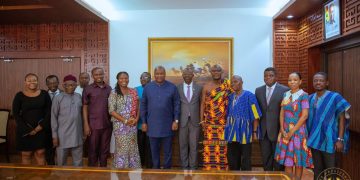President Mahama Urges Strategic Infrastructure Investment to Unlock AfCFTA Potential
President John Dramani Mahama has reiterated the urgent need for massive investments in strategic infrastructure, particularly transport and digital connectivity across Africa, to fully harness the opportunities presented by the African Continental Free Trade Area (AfCFTA) Agreement.
Speaking during a courtesy call by Mr. Wamkele Mene, Secretary General of the AfCFTA Secretariat, President Mahama described the current state of Africa’s road and rail networks as a key bottleneck hindering the success of regional trade pacts.
“Inadequate transport infrastructure continues to limit the effectiveness of existing agreements. To realise the ambitions of AfCFTA and the African Union’s NEPAD vision, we must proactively integrate and open up our economies,” President Mahama noted.
Referencing the Abidjan–Lagos corridor – West Africa’s busiest coastal route – he proposed extending the network through to Dakar, arguing that such investments would unlock seamless trade across ECOWAS and beyond.
“If we invest in crucial corridors like the Abidjan-Lagos route and extend it to Dakar, we will create a seamless channel for the exchange of goods, significantly boosting intra-African trade,” he stated.
President Mahama also highlighted the increasing trade volumes between Ghana and Sahelian economies such as Burkina Faso and Mali, describing the growth of transit trade as a major opportunity to deepen regional economic ties.
“We are proud hosts of the AfCFTA Secretariat, and our government remains fully committed to facilitating your critical work and ensuring its success,” he told Mr. Mene.
For his part, Mr. Mene congratulated President Mahama on his election and praised Ghana’s peaceful transition. He disclosed that 49 out of 55 AU member states have ratified the AfCFTA, with 24 countries now actively trading under the framework. Ghana, he added, remains a key pilot country since the start of trading under the Agreement.
However, six countries—including Benin, Libya, Sudan, South Sudan, Somalia, and Eritrea—are yet to ratify the pact.








